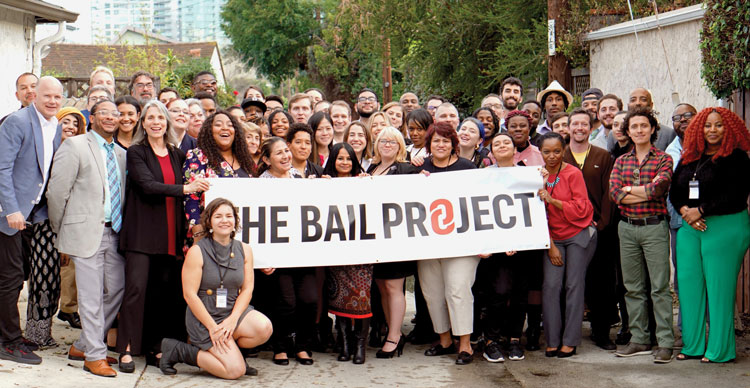

In the 1950s, for example, the federal government targeted a bail fund run by the Civil Rights Congress that supported people charged in politically motivated prosecutions, especially those accused of communism under the second Red Scare. This is a longstanding tactic of the repression of dissent: to criminalize the collective care of activists, including through the payment of money bail. The state’s intention to criminalize dissent could not have been clearer, to both the prosecutors and those they were prosecuting. And for that prescience, they were labeled as terrorists. The activists were correct in their fear that the police might arrest protesters and attempt to hold them in cages because they could not afford bail. During these prior bail hearings, the state prosecutors made arguments that, were it not for the accompanying criminalization, might verge on comical: They used as evidence against the activists at their bail hearings the fact that some of those arrested had written on their arms the phone number of the Atlanta Solidarity Fund in case bail was set against them. State prosecutors said as much during the bail hearings of dozens of activists who were charged earlier this year with state domestic terrorism charges-their “ terrorism” being the alleged destruction of property or trespassing while engaged in protest. Georgia officials are not hiding the underlying theory of these prosecutions: that to be part of a group supporting protesters is, itself, a crime. The three Solidarity Fund organizers arrested this week-Marlon Kautz, Adele Maclean, and Savannah Patterson-have been initially charged with the felony crimes of charity fraud and money laundering. According to the police, Tortuguita fired first and hit a state trooper, but the available evidence-including the autopsy report, body camera footage, and a lack of gunpowder residue on Tortuguita’s body-point to the state trooper being hit by a fellow officer and Tortuguita’s hands being up in the air when they were gunned down in cold blood. The movement lost its first member to state violence when, in January 2023, Georgia State Patrol killed a 26-year-old nonbinary movement activist who was known as Tortuguita, and who was shot at least 57 times by patrol officers while they sat cross-legged in the forest. In return, local and state police have continuously surveilled and criminalized these activities, beginning with the arrests of protesters in September 2021. For more than two years, the Stop Cop City movement has pushed back against this proposal, through protest actions and tactics ranging from occupation of the forest to mass testimony at city council hearings on the proposal. The Cop City project would, in turn, be funded by at least $30 million in Atlanta’s public funds, and possibly as much as $51 million in public money. In the case of the Atlanta Solidarity Fund, much of their focus in the past year has been on providing this collective support to activists in their local movement to stop “Cop City,” shorthand for the Atlanta Police Foundation’s plan to raze 85 acres of the Weelaunee Forest and, in its place, build a $90 million police training complex that includes a small model city in which to practice police tactics.


 0 kommentar(er)
0 kommentar(er)
